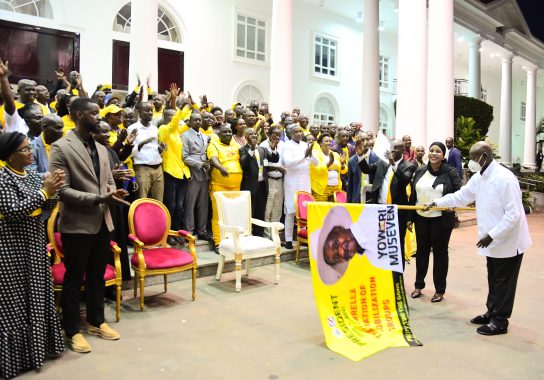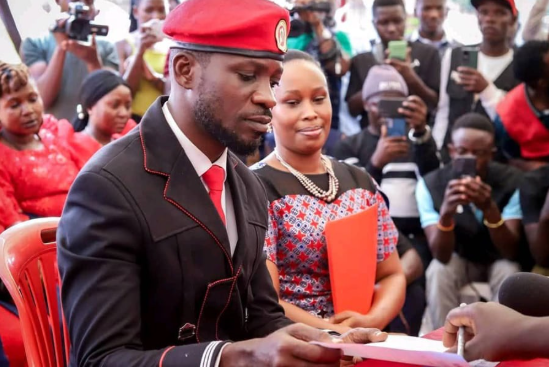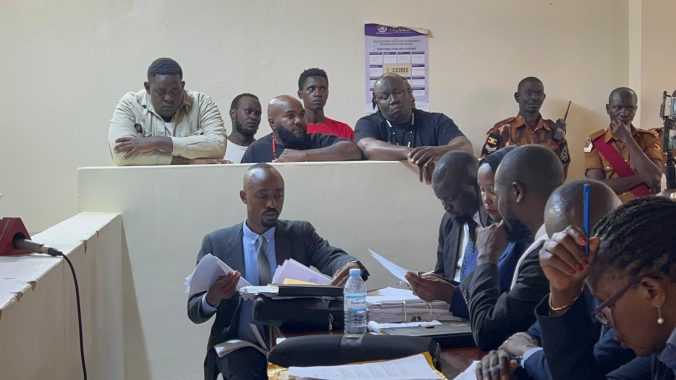UPDF Amendment Law
Human rights advocate Dr. Dennis Daniel Ssemugenyi has taken legal action against the recently enacted UPDF (Amendment) Act, 2025, by filing a petition at Uganda’s Constitutional Court.
The petition seeks to have the law declared null and void, citing fundamental constitutional violations.
The controversial amendment permits military courts to try civilians, a provision that Dr. Ssemugenyi argues flagrantly breaches Uganda’s constitutional guarantees of fair trial rights before independent civilian judiciary bodies.
The government, represented by the Attorney General, along with Parliament, the legislative body responsible for passing the act are the named respondents in this case.
In his submission, Dr. Ssemugenyi points to multiple infringements of the Constitution, particularly Articles 28(1), which guarantees the right to a fair hearing by an impartial civilian court, and Article 44(c), which enshrines the right to a fair trial as non-derogable. He also references Articles 119, 120, and 126, which safeguard prosecutorial independence and the separation of judicial powers.
He further argues that the new legislation disregards previous Supreme Court decisions and threatens the constitutional doctrine of separation of powers enshrined under Articles 28, 126, and 128.
Another critical issue raised concerns the fairness of parliamentary representation. Dr. Ssemugenyi contends that the law was passed by a legislature whose constituency boundaries violate Article 63(3) of the Constitution, which mandates that constituencies must have roughly equal populations, with deviations not exceeding 15% from the national average.
He reveals stark population disparities across constituencies, some with as few as 59,000 residents, while others exceed 150,000. Given Uganda’s estimated 2025 population of 51.4 million and 353 constituencies, the ideal population per MP should be approximately 70,000. However, the existing disparities have created a skewed parliamentary representation.
UPDF Amendment Law
“This imbalance has produced an artificial supermajority favoring the ruling party,” Dr. Ssemugenyi asserts. “Such disproportional representation undermines the principle of equal suffrage and calls into question the legitimacy of laws enacted under this framework.”
He urges the court to reaffirm that constitutional supremacy prevails over political expediency, stressing that presidential assent cannot legitimize laws that contradict the Constitution.
Among the remedies sought are a declaration that the UPDF (Amendment) Act, 2025 is unconstitutional and void from inception (void ab initio), a recognition that the current parliamentary constituency arrangement fails to represent the people fairly, and a reinforcement of the constitutional safeguard preventing military courts from trying civilians. Dr. Ssemugenyi also advocates for electoral and legislative reforms aligned with democratic principles and civilian supremacy.
“This petition is not an act of dissent but a patriotic duty to uphold justice, constitutionalism, and fairness for all Ugandans,” said Dr. Ssemugenyi in a statement following the filing.
The case is poised to be a landmark for Uganda’s democratic governance, with broad implications for human rights, judicial independence, and the rule of law.
“As the Constitutional Court examines this petition, it must weigh the fundamental values of our democracy and the supremacy of the Constitution,” Dr. Ssemugenyi said.
















